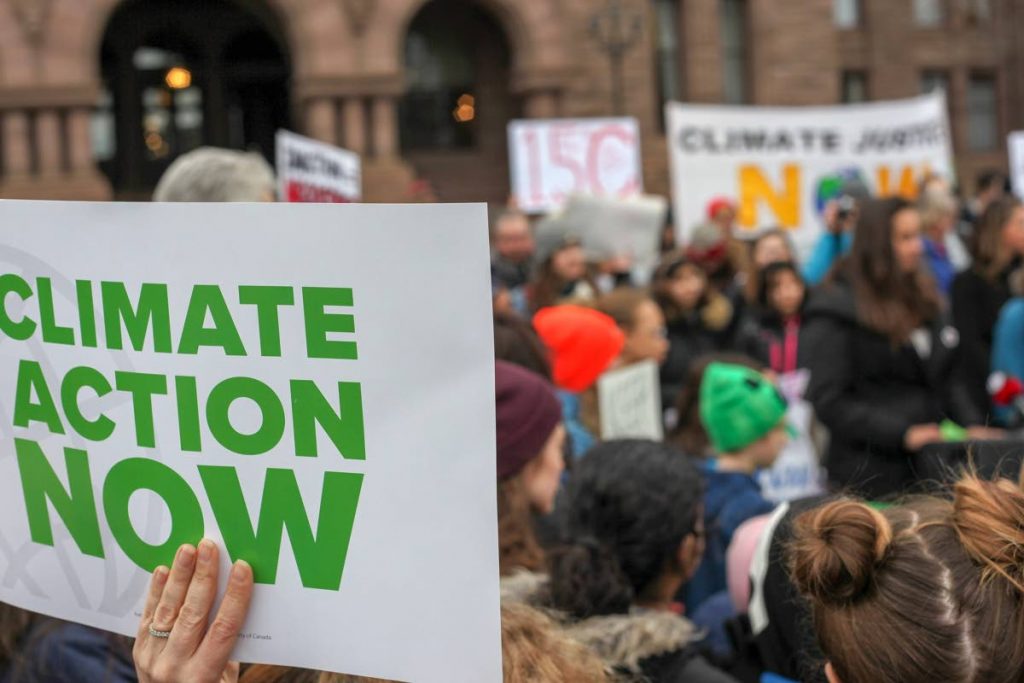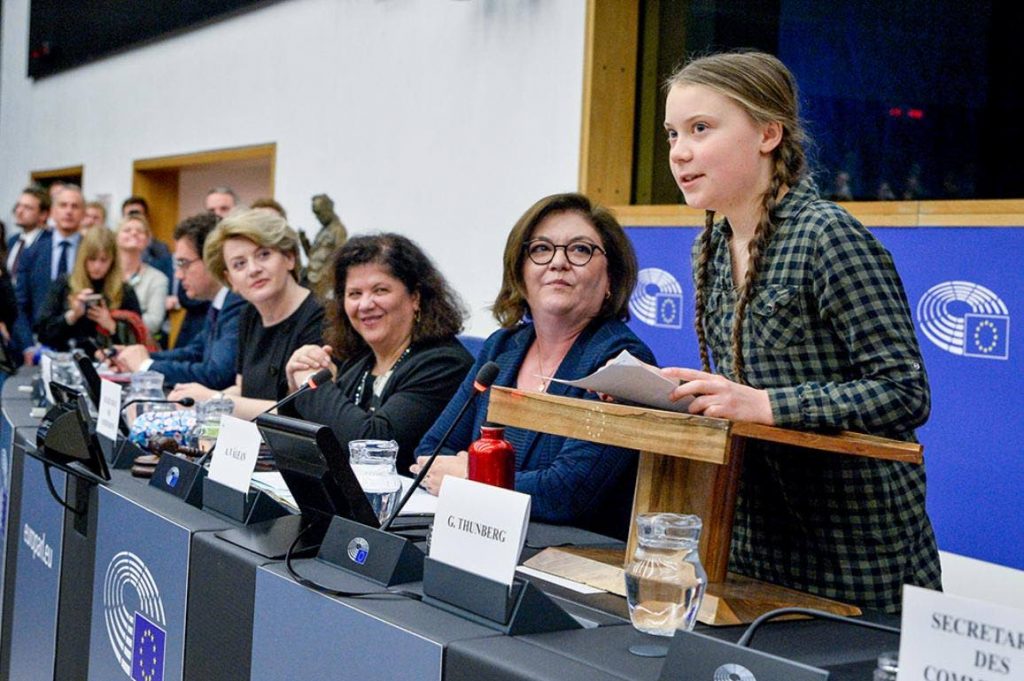The climate change generation needs to be heard

The generation in school now and coming of age in the next few years are enduring a global pandemic and will surely have to deal with more adverse global climate events. Dr Anjani Ganase advocates that it’s time they had a say in the issues around climate change.
In one month’s time, the COP 26 (Conference of Parties) will be held in Glasgow where once again global leaders meet to renegotiate climate targets. Since the Paris Agreement in 2015, the world has officially got one degree (Celsius) warmer and by the end of the century is projected to be three degrees above pre-industrial conditions. The Paris Agreement committed the world to curbing temperature rise to two degrees by 2100. The current trajectories reflect the failure of major nations to achieve their climate targets to date.
One group that is very concerned about these failures are the younger generations – those born since 2000 – who came into an already changing world and have always been exposed to the dialogue of climate change. In the days leading up to COP26, the UN Conference of Youth 16 (COY16) will also be held in Glasgow. Youths, 18 to 35 from around the world, of varying socio-economic backgrounds are coming to together to draft and submit a policy document to be presented at the UN COP 26. It is one of many strategies to give the younger generations a voice in one of the most important discussions to be had with respect to climate change. Global warming will impact them more than any generations before.
Theiry et al recently published a study on intergenerational inequities in exposure to climate extremes, which looked at the risk of climate-related extreme events such as droughts, wildfire, hurricanes across generations. The study compared the risk of people born in 2020 to their grandparents’ generation, people born in the 1960s.
When considering all types of extreme events, the risk for a younger person to be impacted by extreme climate events is about two to seven times higher than someone born in the 1960s. With respect to heat waves, older generations were at risk of four heat waves throughout their lifespan regardless of the future scenario, while a person born in 2020 is predicted to experience about 30 heat waves throughout their life span, based on the current climate trajectory.
This can be reduced to 18 heat wave events in their lifetime, if we manage to keep global warming to 1.5 C. People who are six years old in 2020, will experience twice as many wildfires and tropical cyclones, three times more riverine floods, four times more crop failures and five times more droughts within their lifespan compared to their grandparents, based on the current climate trajectory.

Even if we hit the ambitious target of staying within 1.5 C increase in global temperature, young generations will still face unprecedented climate conditions never experienced before in the history of humankind.
Geographically, youth living in North Africa and the Middle East will experience the higher end of exposure to extreme events (seven times more than people over 60). Young people growing up in these locations will suffer a lifetime of exposure to heat waves and drought. To put it into perspective, the 53 million children projected to be born in Europe and Asia between 2016 and 2020 will experience four times the extreme events; while 172 million children born in Sub-Saharan Africa will experience six times the extreme events in their lifetime with 50 times more heat waves.
These areas could benefit the most from the climate negotiations especially if the target remains keeping global temperature rise to 1.5 C. Small islands are also considered some of the most vulnerable to climate change, and although small islands were not included in the study specifically, it is clear that the risk to younger generations in the Caribbean is something to be concerned about. A temperature rise above 1.5 C will be devastating economically and ecologically as well as to future generations.
Not considered in these models are the combined impacts of extreme events, such as crop failures and drought, or other forms of climate-caused events, such as disease outbreaks and economic losses. Also not considered is the level of vulnerability to subsequent climate disaster, such as reoccurring heat events with short recovery intervals which will likely have more severe long-term impacts or permanent shifts compared to say four sporadic experiences over a lifetime.
It is no wonder that young people around the world are dissatisfied with the slow pace and inaction by governments and leaders who are largely over 60 and have had the luxury of living in a world not impacted by climate change. Because future generations must contribute to the carbon reduction by lowering their carbon footprint eight times compared to the older generations, it is apparent that indulgences and luxuries enjoyed by grandparents are now being paid for by the lower quality of life of future generations.
Greta Thunberg is the most renowned for her stance on climate change. At 15 years of age, dissatisfied with the lack of changes in Sweden, she started the School Strike 4 Climate movement in her home country in 2018. One year later the movement amassed over four million people from 150 countries around the world, many of whom were school children just like her pleading for a voice that considers them in all action against climate change. These movements have been sustained and become organised to more formal dialogues. At COP26 global leaders aim to re-negotiate to ensure that carbon emissions are reduced to global net zero by 2050, to keep the global temperature rise below 1.5 C and to avoid climate disaster by using more radical ways to curb carbon emission.
Young people want to be included in the decision-making process, they want access to resources that would assist in climate adaptation, and inclusion and training in the opportunities for energy transitioning in the future. They are acutely aware of what lies ahead if nothing is done now. Shouldn’t the next generations be represented in environmental, social and governance discussions; their ideas considered and included? Isn’t it time to invite them in? Or must they break the doors down?
Bravo to the 15 year olds who are taking a stand not just for their own future, but the future of the entire human family.

Comments
"The climate change generation needs to be heard"